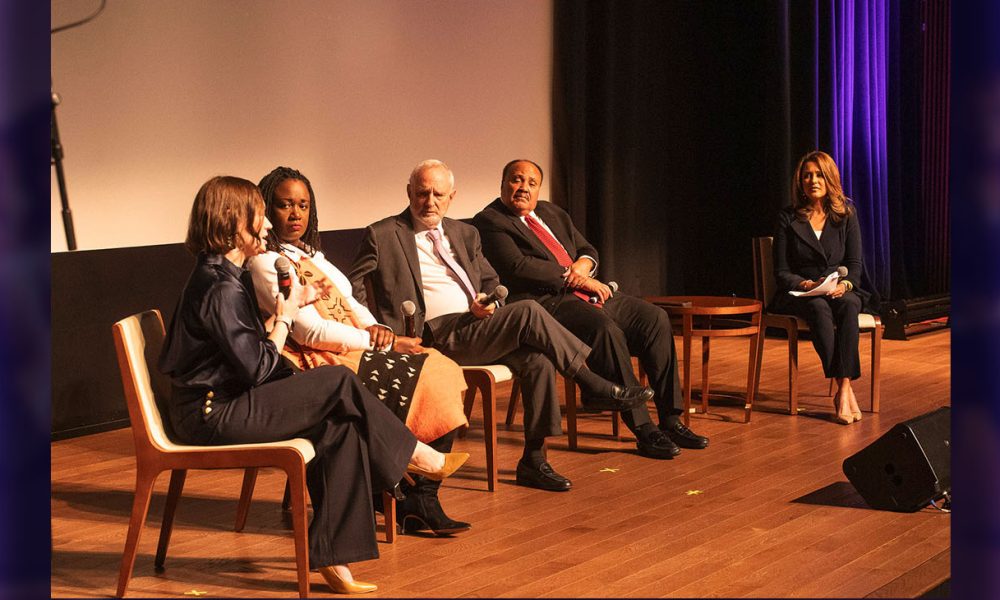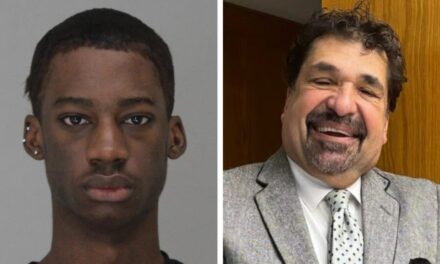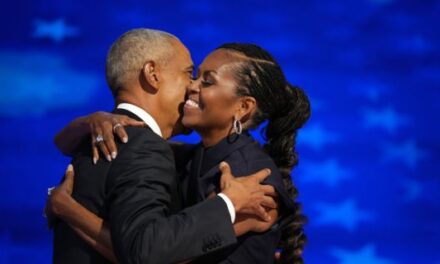
By Adam Shapiro, CEO/President ASPR

Martin Luther King III, the son of revered civil rights icons Dr. Martin Luther King Jr. and Coretta Scott King, directly tied his parents’ dreams for America to the multi-faith initiative to rescue the historic Scotland African Methodist Episcopal (A.M.E.) Zion Church. King passionately spoke about the Potomac, Maryland church that formerly enslaved congregants built by hand. Yet it’s a modern challenge that caught his attention; flash flood waters in 2019 and additional weather damage, exasperated by the rerouting of a nearby road, threaten Scotland.
King said, “How does it align with ‘I Have a Dream?’ Talk about salvaging and rebuilding…this symbol, this religious institution that provides an opportunity for spiritual learning, is similar to what my dad and mom were doing when they were building the beloved community and Scotland is about building the community.” King made his remarks at the National Museum of African American History and Culture (NMAAHC), which is only about a mile from the Lincoln Memorial where his father delivered his inspiring “I Have a Dream” speech over 61 years ago.
The event at the Smithsonian Museum celebrated the 100th anniversary of Scotland’s founding and its “2nd Century Project,” which is a rescue and rejuvenation initiative under the leadership of Reverend Dr. Evalina Huggins. Bishop Brian R. Thompson Sr. said, “It’s a wonder of Montgomery Country because they wonder how we’re still here! It’s an oasis where people will be able to see a symbol of freedom…even though water tried to wipe it away, God is lifting it up higher and higher.”
The plans call for rebuilding the historic original structure; re-grading the surrounding landscape to mitigate more flooding; and constructing a new state-of-the-art house of worship to meet future needs. Supporters, including Glenstone museum founder Mitch Rales, announced they’d raised nearly $9 million toward the $11 million goal. The NMAAHC event, moderated by WUSA9 news anchor Lesli Foster, served as a powerful reminder of Scotland’s importance, even for those who don’t worship there. Longtime Bethesda resident Joyce Siegel was recognized for her work to revitalize the Scotland community, including the church, in the 1960s.
Frank Islam, a philanthropist and Muslim, said that he and his wife Debbie Driesman quickly embraced the effort. “The 2nd Century Project has brought together the broader community in a common cause. It’s a remarkable effort, especially at a time when we need more opportunities to work together as Americans.” Rabbi David Saperstein, U.S. Ambassador-at-Large for International Religious Freedom, reflected that the wide-ranging support illustrated the Bible’s lesson to “Love your neighbor as yourself.” In fact, Rabbi Evan Krame and members of his nearby Jewish congregation made the first donation.
Amy Spitalnick, CEO of the Jewish Council for Public Affairs, and others reflected on the longstanding ties between Jewish and Black communities to push back against antisemitic and anti-Black actions, from Selma, Alabama, in the 1960s to the more recent violent marches in Charlottesville, Virginia, and other locations. High school student Alice Carrie Marriott highlighted the importance of young people creating ties as she spoke about being a member of The Church of Jesus Christ of Latter-day Saints and her commitment to Dr. King’s dream in the 21st century.
Dr. Erika Gault, Director of the Center for the Study of African American Religious Life at NMAAHC, spoke about the diversity of religions in Black culture, including Blacks who are practicing Jews and Buddhists. She also explained the evolving definitions of religious involvement in today’s culture. In addition, Rep. Jamie Raskin (D-8th District) presented the church with a congressional proclamation for its efforts to preserve and build on its important legacy. As the church’s choir sang “I Want to Know What Love Is,” attendees fully realized they were in the presence of true love during the very moving evening.
Post Views: 1,216




